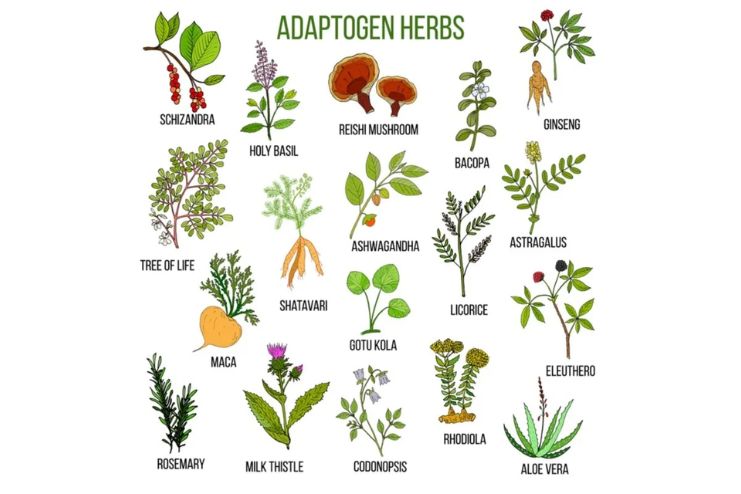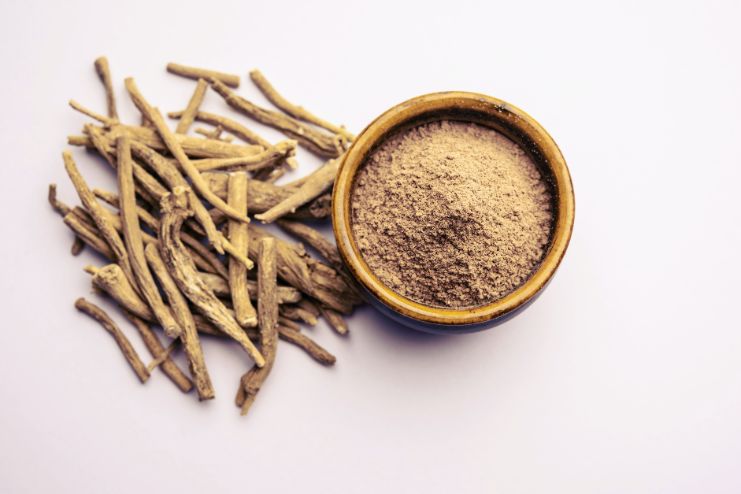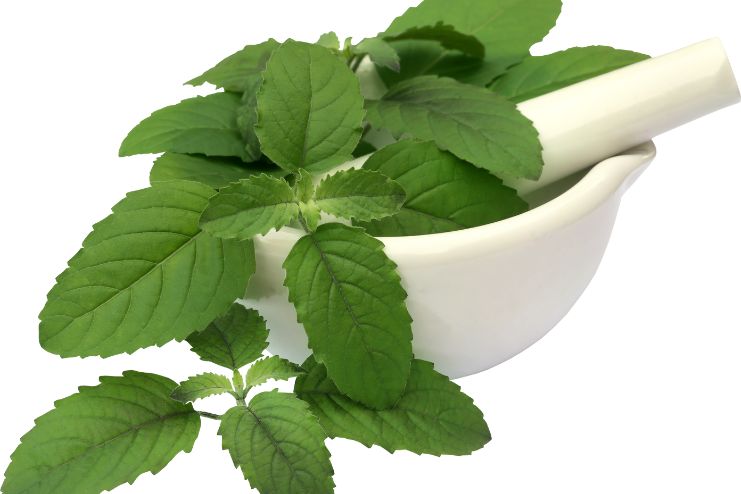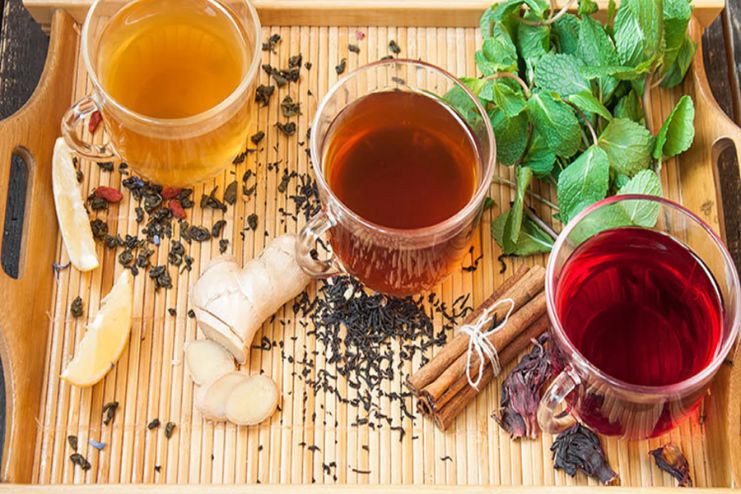Affiliate Disclaimer
Some links in this article are affiliate links. We may earn a small commission if you make a purchase through these links, at no extra cost to you. We only recommend products we find useful to our readersIn this fast-paced world, managing stress is becoming increasingly imperative.
Adaptogens for stress help bring a holistic natural approach to building mental and physical resilience. These powerful herbs and natural substances help the body adapt to stress triggers by balancing cortisol levels and supporting the body’s ability to maintain equilibrium.
Known for their roots in ancient practices like Ayurveda and Traditional Chinese Medicine, adaptogens are gaining popularity as natural stress relief remedies. From soothing the mind to increasing energy, the best adaptogens for anxiety and stress management, like Ashwagandha and Rhodiola Rosea, benefit mental health.
This article discusses how adaptogens work, the benefits they provide in managing stress, and some practical ways of implementing them in daily life to have a balanced and stress-free life.
What Are Adaptogens?

Adaptogens are herbal, root, and even some mushroom preparations that help the human body adapt to physical, emotional, and environmental stresses. They work powerfully by normalizing the body’s response to stress.
Traditional Ayurveda and Traditional Chinese Medicine (TCM) practitioners recognized that they could help support energy, endurance, and mental clarity.
The most outstanding function of adaptogens is their modulation of the hypothalamic-pituitary-adrenal axis, which determines how the body responds to stress. They allow cortisol, the main stress hormone, not to make the body stay for a long time in a state of alertness.
Cortisol regulation and maintenance of hormonal balance enable the body to recover better from stress and prevent burnout. Adaptogens have many other benefits besides stress relief, including enhanced immunity, better concentration, and higher energy levels.
Also, Read: Mindful Mornings: Breakfast Habits That Set You Up for a Stress-Free Day
Benefits of Adaptogens in Stress Management

Adaptogens have been widely used for their ability to help the body respond naturally to stress.
Here are some of the key benefits of adaptogens:
- Balancing Cortisol and Stress Hormones:Adaptogens regulate the hypothalamic-pituitary-adrenal (HPA) axis, which helps to balance cortisol levels (R). Lower cortisol levels diminish the physical and emotional effects of stress, and you experience a sense of calm and relaxation.
- Improve Concentration and Mental Acuity: Adaptogens enhance brain performance and reduce mental fatigue (R). Rhodiola Rosea and Ginseng are two adaptogens that enhance mental acuity and memory, making it easier to be productive even when stress levels are high.
- Reducing Fatigue and Improving Energy Levels: Adaptogens help the adrenal glands, which get overworked because of chronic stress. Ashwagandha and Maca Root enhance one’s energy levels, reducing the feeling of burnout and rejuvenating the body.
- Immune System Support: Long-term stress can weaken the body’s immune system, making you vulnerable to diseases. Most adaptogens, like Reishi Mushroom and Holy Basil, boost the body’s immunity (R), saving you from infections and illnesses.
- Emotional Balance: Adaptogens balance neurotransmitters like serotonin and dopamine to stabilize mood. They actually decrease instances of anxiety and depression, thus offering a natural strategy to retain emotional balance.
- Physical Resilience: Adaptogens increase the body’s capability to adapt to physical stressors, such as fatigue from exercise or work.
- Sleep Quality: Adaptogens like Ashwagandha have proven to soothe the nervous system, and Reishi Mushrooms lower stress-related insomnia and help people sleep better.
Also, Read: Top 5 Stress-Busting Tips Every Man Needs in His Life
Top Adaptogens for Stress Relief
Each of these adaptogens offers unique benefits for stress relief. Whether you’re looking to calm your mind, boost your energy, or improve your resilience, these natural remedies can significantly improve your stress management routine.
Always start with small doses and consult a healthcare professional, especially if you’re taking medications or have existing health conditions.
1. Ashwagandha

Ashwagandha, an Ayurvedic herb, is used to relieve anxiety, calm the mind, and boost energy levels. It helps reduce cortisol levels in the body to better adapt to stress (R).
Key Benefits: It enhances sleep quality, reduces fatigue, and increases overall resilience to stress.
2. Rhodiola Rosea

This powerful adaptogen improves mental acuity, decreases fatigue, and increases concentration. It is specifically effective against stress-induced exhaustion (R).
Key Benefits: Enhances physical and mental performance, stabilizes mood, and reduces symptoms of burnout.
3. Holy Basil (Tulsi)

In Ayurveda, holy basil is considered the “Queen of Herbs. ” It acts as an adaptogen and limits stress hormone levels (R).
Key Benefits: Reduces stress by reducing cortisol levels and may also improve respiratory and immune function.
4. Ginseng

Ginseng improves physical stamina, mental clarity, and energy in general (R). It is a stress reducer yet an energy increaser.
Key Benefits: Decreases exhaustion, enhances focus, and supports the body through stressful times.
5. Maca Root

Maca balances hormones, making it an excellent adaptogen for mood regulation and stress relief (R). It is also an energy booster and increases stamina.
Key Benefits: Helps with emotional balance, increases energy levels, and generally promotes well-being.
6. Reishi Mushroom

Known as the “Mushroom of Immortality,” Reishi mushrooms have a sedating effect and enhance immunity (R). They are usually prescribed to improve sleep quality and reduce stress levels.
Key Benefits: The mushroom enhances immunity, offers restful sleep, and decreases stress.
Also, Read: Stress-Free Living: 7 Family-Centric Strategies for a Calmer Home
How to Incorporate Adaptogens Into Your Routine

Incorporating adaptogens into your daily life is easy and can be altered according to your personal preferences, goals, and requirements. Here are some practical ways to incorporate these natural stress relievers into your lifestyle:
- Herbal Teas and Infusions:Several adaptogenic herbs, such as Holy Basil (Tulsi)and Ashwagandha, are available in herbal tea form. Make a warm cup of adaptogen-enriched tea in the morning or evening and enjoy the soothing ritual with relaxation and stress-reducing benefits.
- Supplements and Capsules: For those with hectic lifestyles, adaptogenic supplements can be consumed as capsules or tablets. Choose high-quality supplements from a company that ensures third-party testing of purity and effectiveness.
- Powdered Form for Smoothies and Recipes: Add powders, including Maca Root, Ashwagandha, and Reishi Mushroom, to smoothies, coffee, or oatmeal. These powders blend well into recipes, provide nutritional benefits, and support stress management.
- Tinctures and Extracts: Tinctures are liquid extracts of the adaptogen combined with water juice or herbal teas. They are quickly absorbed into the body, making them a great fit for people who need quick stress relief.
- Adaptogen-infused Snacks and Drinks: Health food stores offer adaptogen-infused snacks, protein bars, or beverages. These are on-the-go ways of getting adaptogens into your system. Look for products that have added adaptogens, such as Rhodiola rosea, Ashwagandha, or Ginseng.
- Evening Relaxation Rituals: Add adaptogens to your bedtime routine to relax and sleep better. Examples:
- A warm cup of Reishi Mushroom teabefore bed calms the mind and supports restful sleep.
- Add a few drops of a calming adaptogen tincture to your evening beverage.
- Adaptogens in Cooking: Some adaptogens, such as Maca Root, have a mild, nutty flavor that pairs well with baked goods, soups, or stews. Try cooking new recipes and introducing adaptogens into your meals in a tasty manner.
- Develop a Daily Habit: Take adaptogens daily for optimal benefits. Using them daily is the only way the body learns to be strong against stress factors that build up. Begin with one adaptogen, and watch for your body’s response before adding more.
Also, Read: Spirituality For Stress Relief! What’s The Tie-In? Awaken Your Mind!
Pro Tips
- Pair adaptogens with healthy habits, such as a nutritional and balanced diet, exercise, and mindfulness practices.
- Dosage and quality are critical selection factors in judging the potency of an adaptogen. Do not exceed the limits shown on the labeling, and choose a product that clearly displays the seal of third-party testing to ensure product purity and efficacy.
- Start slowly when introducing adaptogens into your lifestyle, and observe how the body reacts. If you experience unusual symptoms, decrease the amount or stop using them altogether and seek advice from a health professional.
Are Adaptogens Safe for Everyone?

Generally, adaptogens are safe and can be taken by anyone, but these supplements cause issues with inappropriate use, like interaction with certain medications and specific health conditions. Here is some information on adapting safety.
1. Possible Adverse Effects
The common adverse side effects of an adaptogenic herb may appear to be:
- Digestive Issue: Sometimes, people develop minor stomach issues, such as bloating, nausea, or general stomach upset.
- Drowsiness or Overexcitement: Some adaptogens, such as Ashwagandha or Rhodiola rosea, induce drowsiness or sleepiness. Others, like Ginseng, tend to stimulate, leading to a feeling of restlessness or even a problem falling asleep if taken in the evening.
- Headaches or Dizziness:These effects have been reported when people begin with adaptogens for the first time, particularly when they take higher doses.
2. Interactions with Medications
Adaptogens may interact with other medications, and you should always seek advice from a healthcare provider before adding them to your routine, especially if you take any of the following:
- Antidepressants or Anti-anxiety Drugs: Adaptogens like Rhodiola Rosea and Ashwagandha may be used in combination with antidepressants or anti-anxiety drugs to enhance the drug’s effect, but they may also cause interaction, especially with other medications affecting serotonin levels.
- Blood Pressure Medication:Adaptogens like Ashwagandha can reduce blood pressure, which may interact with blood pressure medications and cause it to be too low.
- Blood Thinners: Ginseng has been known to interact with blood thinners like Warfarin, increasing the risk of bleeding.
Always inform your doctor about any adaptogen you want to take, especially if you are already on prescription drugs.
3. Special Conditions: Pregnant and Breastfeeding Women
- Pregnancy:Little has been studied about the safety of many adaptogens during pregnancy. Some, like Rhodiola Rosea, should be avoided; their stimulating action may lead to adverse side effects. Other adaptogens, like Ashwagandha, may be used, but only under strict medical supervision if they impact hormone levels.
- Breastfeeding:If you are breastfeeding, speak to your doctor, as some of these may leach into the milk, causing havoc with a baby. For instance, Maca Root is known to alter hormone levels, which may impact both mother and child.
4. Pre-existing Medical Conditions
Under any of the following conditions, you should consult a doctor before supplementing with adaptogens:
- Autoimmune Diseases: Some adaptogens can stimulate the immune system. For example, Ashwagandha can worsen diseases like lupus, rheumatoid arthritis, or multiple sclerosis.
- Thyroid Problems: Ashwagandha can interfere with thyroid hormones, and therefore, a patient with hypothyroidism or hyperthyroidism should seek a doctor’s opinion.
- Hormonal Balances: A few adaptogens, such as Maca Root, influence the production of hormones. If you have a family history of hormone-sensitive disorders like breast cancer, consult your doctor before you use it.
Also, Read: Stress And Mother’s Abuse Can Affect An Infant’s Brain, New Study Suggests
Lifestyle Practices to Pair With Adaptogens for Stress Relief

Some lifestyle practices blended with adaptogens will amplify the benefits and assist you in developing a more holistic way of dealing with stress. The following are lifestyle habits that complement adaptogens:
- Meditation and Mindfulness: Reserve 10-15 minutes daily for meditation or mindfulness practices that allow your mind to feel calm and present. Practice deep breathing, meditation, or progressive muscle relaxation. Be mindful and let your body and mind relax.
- Physical Activity: Every time you exercise, your body releases “feel-good” hormones, enhancing mood and reducing stress levels. Engage in at least 30 minutes of moderate physical activity, like walking, yoga, or cycling, several days a week.
- Diet Rich in Whole Foods: Nutrient-dense whole foods provide your body the fuel it needs to function at its best. Foods rich in antioxidants, vitamins, and minerals are good and helpful in combating oxidative stress. Incorporate plenty of fresh veggies, fruits, lean proteins, whole grains, and healthy fats into your diet. Limit excess caffeine, sugar, and processed foods that will fuel stress and anxiety.
- Restorative Sleep: Chronic sleep deprivation can elevate cortisol levels and impair your body’s ability to handle stress. Create a soothing bedtime habit, such as reading a book, taking a warm bath, or lightly stretching before bed. Stay away from screens and heavy meals at least a couple of hours before bedtime. Sleep for 7 to 9 hours every night.
- Social Relationships and Support Systems: Supportive friendships, family relationships, or communities can help you share emotional support and cope with stress. Spend time around people with whom you feel good. Discuss worthwhile topics and group projects, or join a support group.
- Time Outdoors Connecting with Nature: Nature is proven to significantly reduce stress. Being outdoors exposes a person to green spaces, sunlight, and fresh air, reducing cortisol and boosting mood. Walk around the park each day, hike up a mountain, or simply sit outside in a quiet space and relax.
- Reduce Stress Triggers and Manage Time: Although completely eliminating stress from your life is impossible, you can control its sources. Practice saying no, delegating work, and prioritizing a to-do list. Manage your time by breaking tasks into smaller steps, setting achievable goals, and taking regular breaks.
- Breathing Exercises and Relaxation Techniques: Deep breathing techniques, such as diaphragmatic or belly breathing, can quickly and effectively reduce stress in the moment.
Also, Read: 15 Ways To Get Rid Of Stress At Work – Don’t Let The Work Overwhelm You
Conclusion
Adaptogens help cope with the demands of modern living in a natural and holistic way. Taking daily supplements like Ashwagandha, Rhodiola Rosea, and Holy Basil can help balance cortisol, increase mental clarity, and build physical and emotional resilience.
When combined with other healthy lifestyle practices, including regular exercise, mindful meditation, a nutrient-rich diet, and restorative sleep, adaptogens can truly be a game-changer in stress management and total wellness.
While adaptogens are a powerful tool for stress relief, remember that they are most effective when used in conjunction with other healthy habits. Start small, monitor your body’s response, and consult a healthcare professional if necessary to ensure these natural remedies are right for you.
With patience and consistency, adaptogens can support your journey toward a balanced, calm, and stress-free life.
In this Article




















